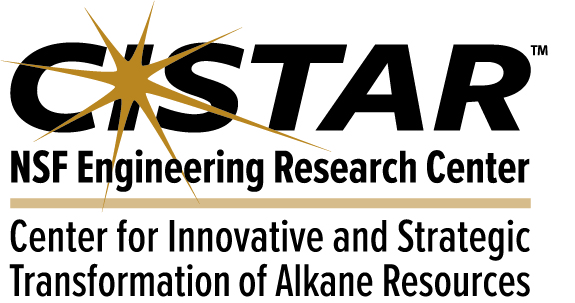Dr. Tobin Marks Reflects on CISTAR Pending Renewal and the Role of Diversity, Equity, and Inclusion By Dr. Denise Driscoll
In Part 1 of his after-dinner remarks, Dr. Marks reflected on CISTAR and the future of the Center. He began by talking about how important these in-person meetings are as a place where:
- You can get re-energized, exchanging ideas and talking about research and technological innovations with colleagues, graduate students, and industry members;
- You can be impressed with not only the caliber of your current colleagues, but the new students and faculty joining CISTAR, as well; and,
- You can celebrate and congratulate one another, reflecting on the many CISTAR accomplishments -- number of students graduated, papers written, patents granted -- and how well we have learned to work together as a team.
Fitting for CISTAR’s biannual meeting with its focus on industry, Dr. Marks also pointed out to the graduate students the uniqueness of their opportunity in CISTAR to interact with industry and learn more practical applications. Moving on to renewal, Tobin reminisced that it always happens - people can’t imagine their Center ending in another 5 years and so they talk about how they’d like to ask NSF for funding for another 10 years, adding humorously, “But that won’t happen!” Tobin ended Part 1 with the promise of new achievements to come, especially with Dr. Ribeiro working hard on how the CISTAR team-- in some shape or form --might evolve and be able to continue working together post-NSF funding.
In Part 2, Dr. Marks both energized and intrigued everyone in the room by talking about how diversity, equity and inclusion (DEI) is more than just capturing the numbers. Although he was proud of mentoring students over the years from groups underrepresented in STEM, Dr. Marks talked about being more active in thinking about DEI, recommending that scientists and engineers take an oath similar to the Hippocratic Oath taken by new doctors to bring home the gravity of their new position and the need to maintain high moral standards.
Dr. Marks then emailed to everyone, and at the same time recited aloud, a chemist’s oath, first suggested by Dr. Ehud Keinan, President of IUPAC (the International Union of Pure and Applied Chemistry), that could easily be adapted for all scientists and engineers to take:
"By what I hold most sacred, I solemnly swear that I will pursue scientific truth and expand knowledge ethically and responsibly. I will endeavor to promote diversity, equity, inclusivity, and mutual respect for all. As a member of society at large, obligated to all my fellow human beings, I will use my chemical expertise to sustain life and protect the environment."
Dr. Marks ended his remarks by asking for a show of support by raising your hand (although some of you might have missed this ending as the microphone wasn’t on). There was a loud endorsement of “ABSOLUTELY!” shouted by someone close to him in the audience. And I’d like to echo that shout out and thank Dr. Marks for accepting CISTAR’s invitation to give the after-dinner remarks, for giving such inspiring, captivating, and timely advice, and for ending with a reminder to all of us to “use knowledge one has gained alongside all things moral in one’s mind.”







